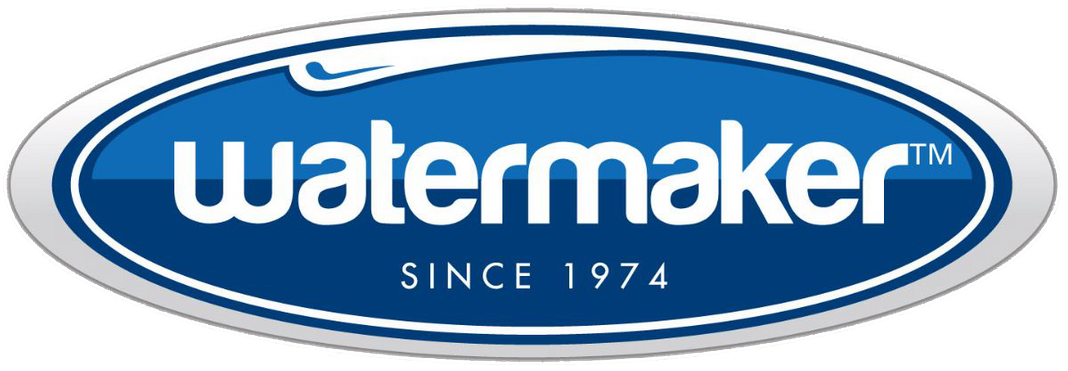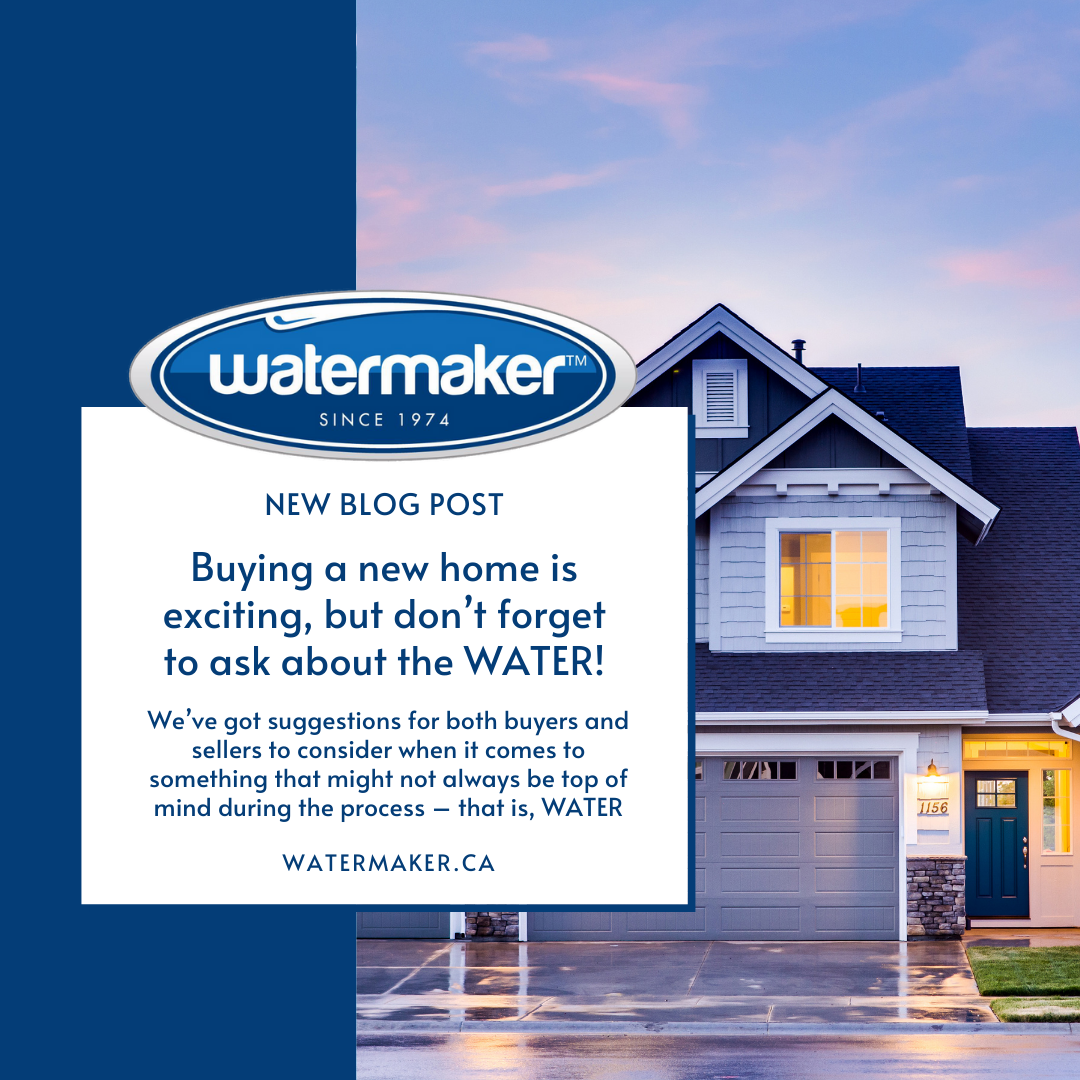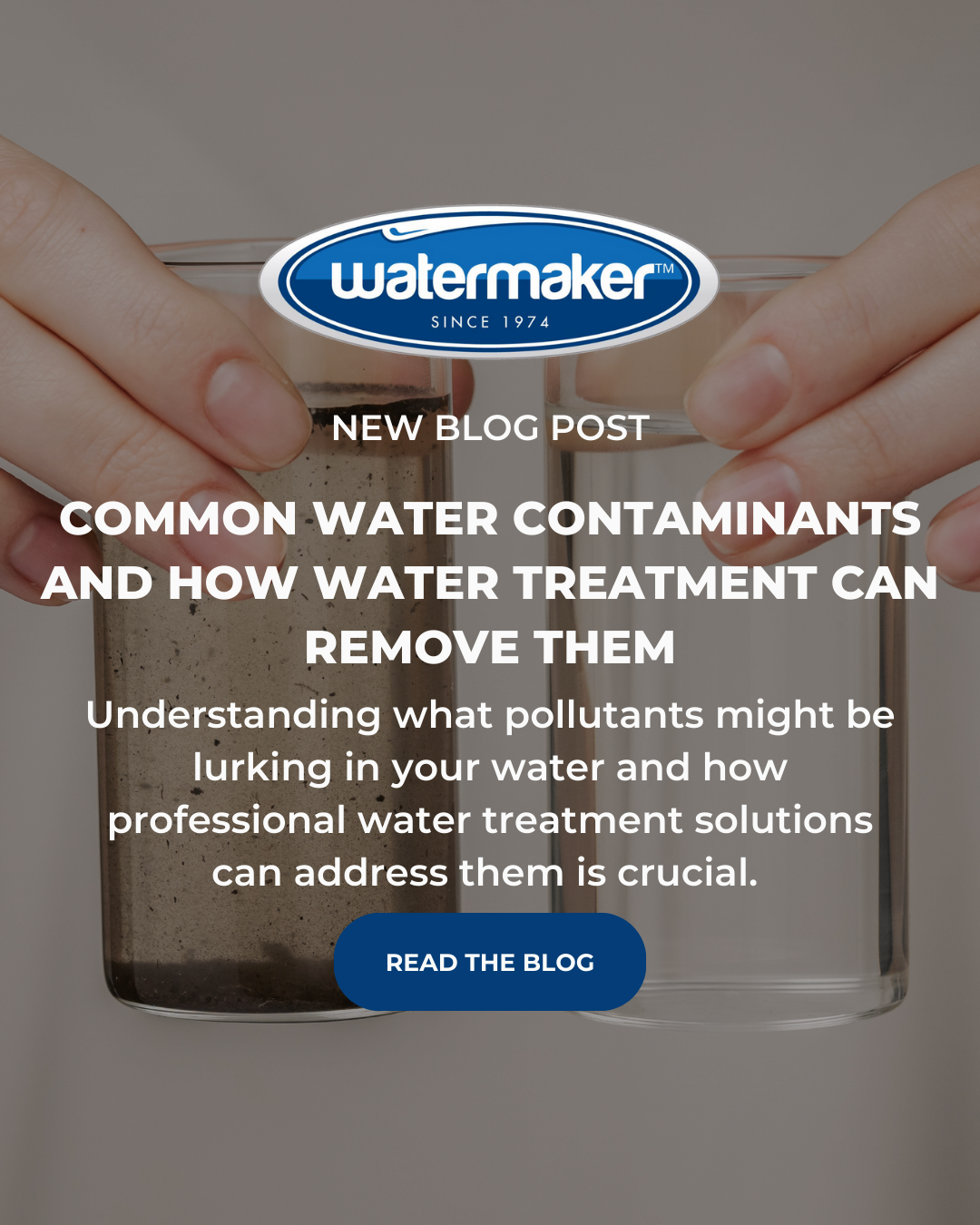Well Water: What Every Buyer Should Know
Conventional real estate suggests that spring is a particularly busy time of year for both buyers and sellers. While there doesn’t seem to be a whole lot of “conventional” thinking going on in the real estate market lately, Watermaker Orangeville is stopping by with these thoughts; not on the market itself but on the kinds of considerations you need to keep in mind when house shopping. In particular, we might be talking to you if:
- You are a city dweller considering a move to a rural property.
- You currently rely on municipal water and have never owned a well reliant home before.
or
- You’ve heard from a friend that having a well is “good,” or “bad.”
In other words, before you make one of the biggest investments of your life and purchase a home with a well, we’ll share everything every buyer should know before you seal the deal!
We’re not real estate experts but we do know a thing or two about water and when you are considering the purchase of a country property that relies on well water, even in this fast-paced, “multiple offers” real estate environment, there are some steps you just shouldn’t skip. In a perfect world, the sellers will already have had a water and well assessment by a certified professional service and make that available to you. Alternatively, you might decide to take a chance and outbid your competitors without taking the well system into consideration. Here is why we don’t think you should:
Wells – Eight Key Concerns To Consider!
- Wells can actually contain a number of contaminants including nitrates, arsenic, uranium and lead.
- A well can easily become an accidental source of E. Coli, a bacteria that can cause severe gastrointestinal illness and occasionally, even death.
- Depending on where the well is situated it might be subject to spring thaw / runoff putting it more at risk for our first two points.
- A well that is shallow may eventually run dry – yes, THAT CAN happen! The key question here is to ask if it is a “drilled” well. These typically go down a distance of about 30 metres although at a bare minimum they should be 12 metres deep.
- What is the well’s water storage capacity and it’s flow rate? Just because a well exists, does not necessarily mean it is big enough to handle the needs of your growing family!
- How old is the well? The average lifespan of a well might be between 30-50 years but you’ll also want to know about the parts that keep it running. Pumps, pressure tanks, all the replaceable (and breakable!) parts that are subject to wear and tear are components you should ask about.
- Where is the well on the property? A well placed too close to a septic system is an invitation to disaster should the septic system fail.
- Where is the well cap located? Not only do you need to know this because….well, because you need to know it, you’ll also want to ensure it’s placed on higher ground, away from any potential water runoff or places on the property where water might pool and collect – making it more susceptible to contamination. As well, the pipe itself should extend at least a foot (or more) up and out of the ground, again to prevent contaminant flow. Ideally, it’s also not located near a driveway or garage that might see oil leaks, gasoline or even potentially volatile compounds leaking into your drinking water.
Reading this list it might all sound a little overwhelming. Perhaps you’re rethinking whether you want to move to a rural area after all! This isn’t about discouraging you from purchasing your dream home. Rather, it’s about how to do so wisely. Sometimes, this might be as simple as asking for all of the maintenance records related to the well and a smart seller will have the information readily available. You can also make an offer on home conditional upon an examination of the well and its water and/or negotiate to have well work completed prior to assuming ownership.
My friend Said…..
Now, what about that friend that said, “Well water isn’t good,” or told you, “Don’t worry, all you need is a good UV light to kill bacteria!” We know our friends love us and usually have our best interests at heart but that doesn’t make them water experts – even if they too live on a property with a well! You’ll want to consider visiting a water specialist service to ask your questions about living with a well. For example, Watermaker Orangeville offers a variety of water, filtration, softeners and osmosis options including UV water sterilization systems. We can answer all the questions you might have and probably a few more you’d never think to ask! We can explain why in your case it might be better to rely on bottled water or whether UV is right for you. The best way to go about this is to first have your water tested.
Water Testing
You didn’t think we’d forget about the most basic information of all did you? Asking to see the results of the last time the well water was tested is crucial information in helping you to make an informed decision about buying a home. When it was tested, who tested it (reputable source) and what the findings were should all be made available to you. In the absence of a report, you’ll want to have the water tested yourself. Generally speaking you should test your water as often as every six months or at a minimum, follow the Health Canada guidelines of testing once every two years. In other words, when you are buying a home, a water test should be readily available and once you’ve purchased a property, you’ll still need to test regularly.
Watermaker Orangeville has been providing services to the Orangeville and surrounding area since 1974. If the rural property you are exploring is nearby, drop in to our retail location or give us a call to discuss all of your well water concerns. We’re happy to work together with you. When it comes to the real estate market in particular, whether buying or selling, a well water assessment is a must have. We can help!



